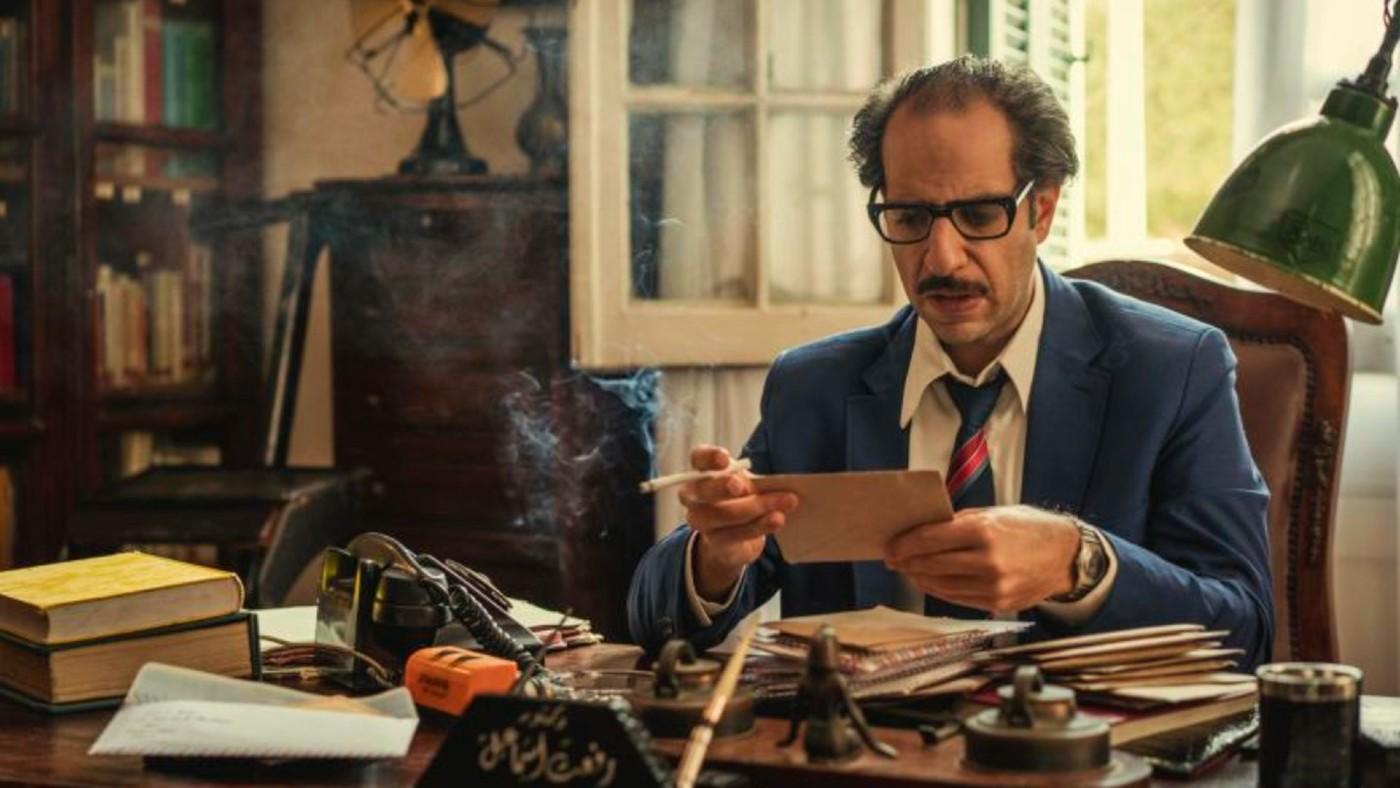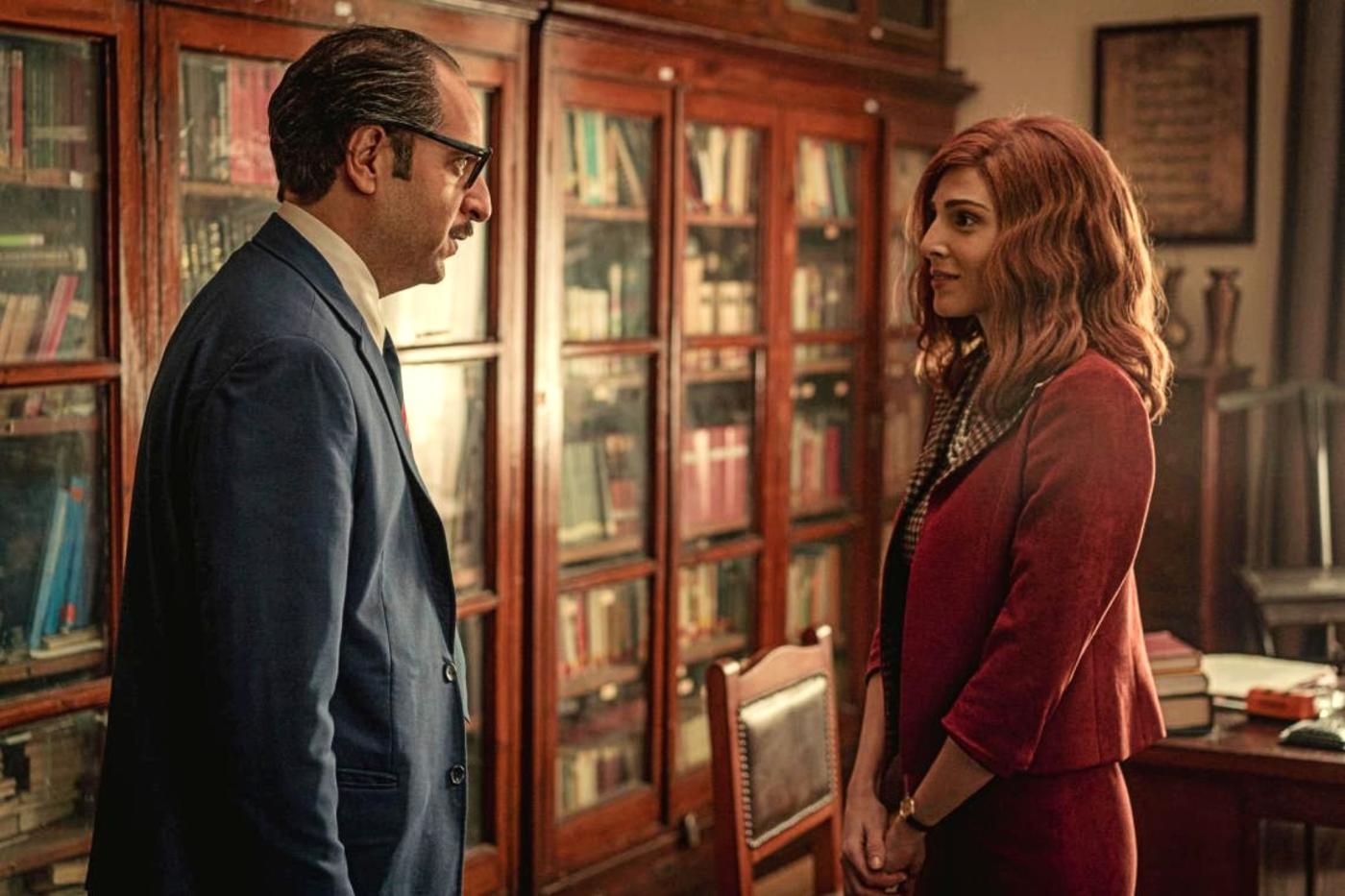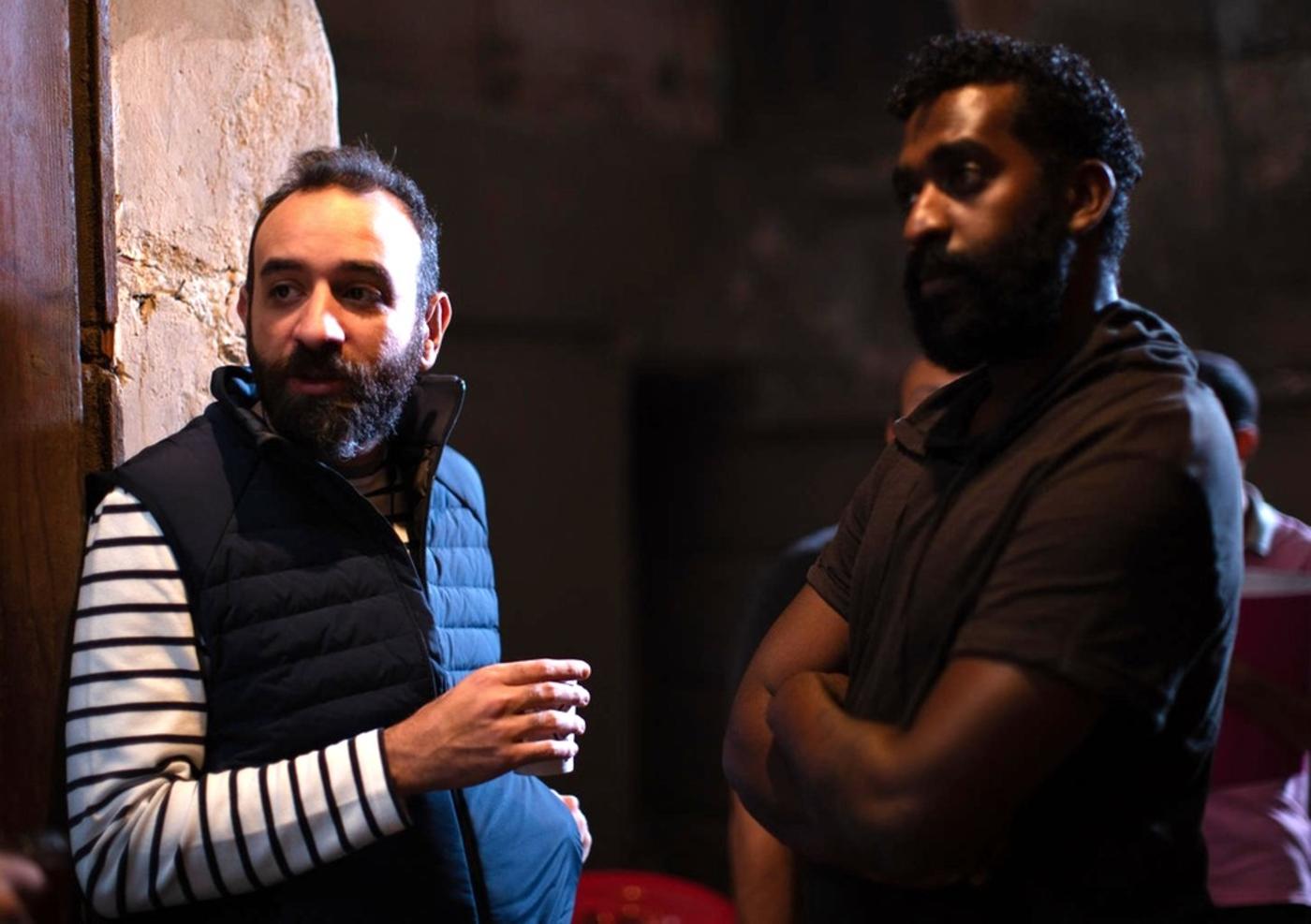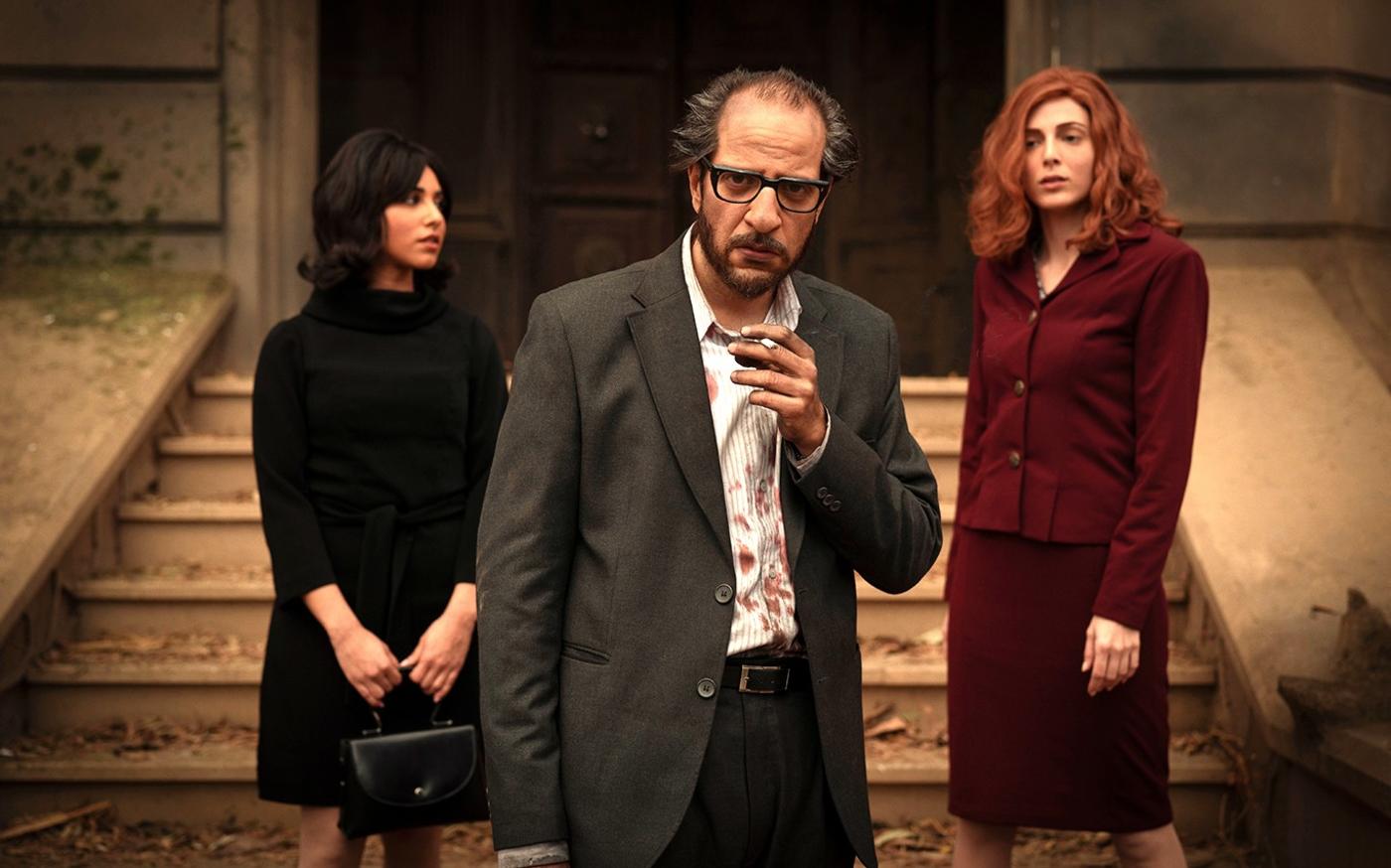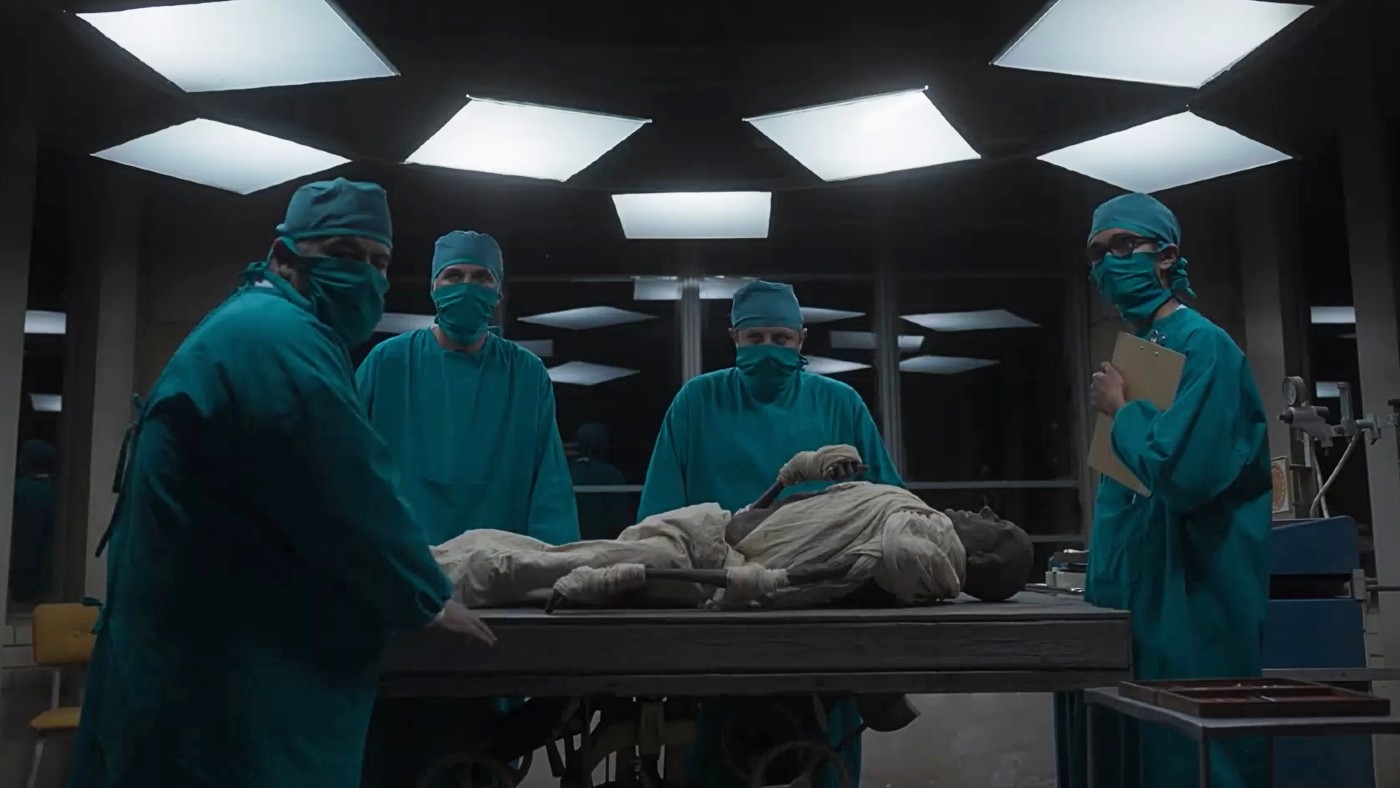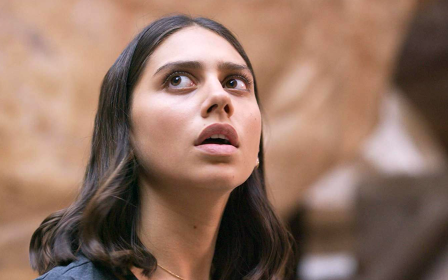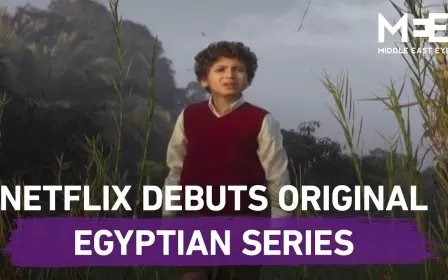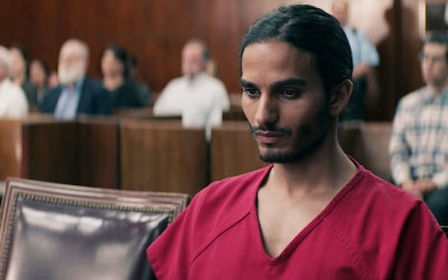Ghost in the machine: Netflix's Paranormal is strictly by the numbers
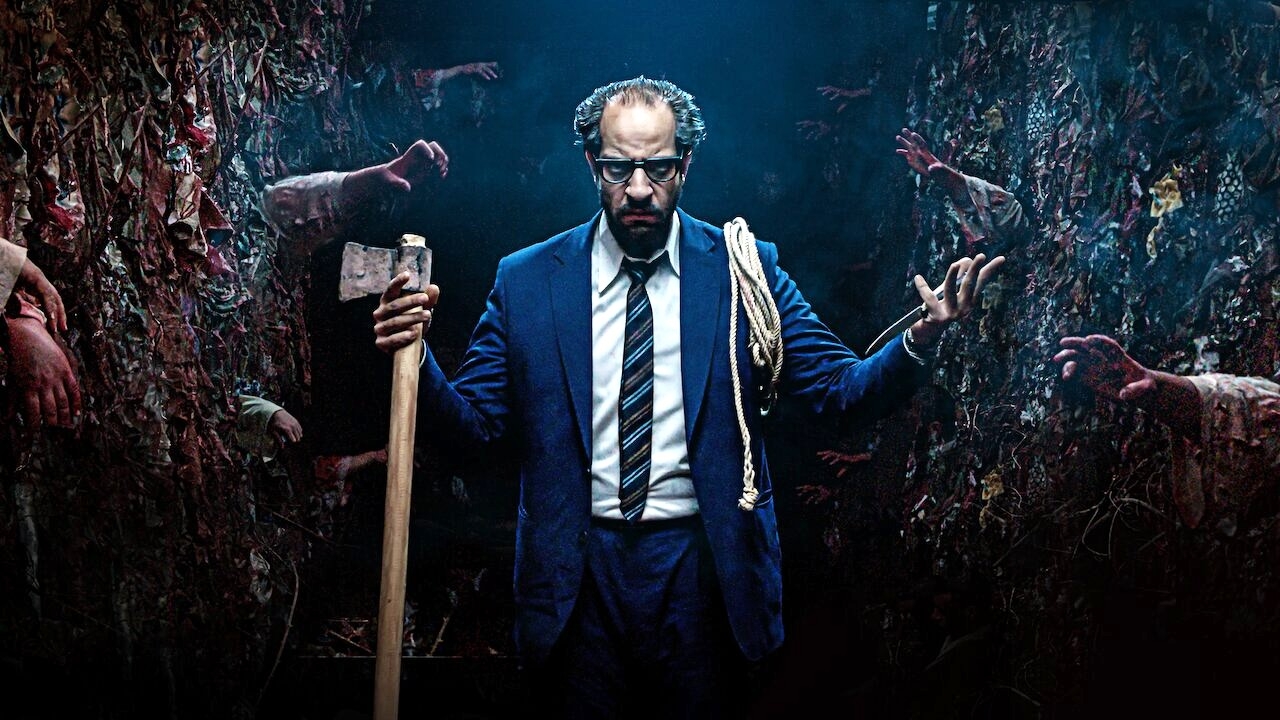
For most middle-class Egyptian kids growing up during the 1990s, it was a rite of passage to enter the world of Paranormal (Ma Wara' al-Tabi'a). A long-running horror book series by physician-turned-novelist Ahmed Khaled Tawfik, it started in 1993 and concluded in 2014, long after its core fans had outgrown the stories.
Paranormal has been one of the most lucrative franchises in Egyptian contemporary literature. But its unorthodox leading character and largely morose atmosphere seem to have dissuaded Egyptian producers from adapting it for TV, despite the success of occasional Egyptian f0rays into horror such as Doors of Fear (2011) and Kafr Delhab (2017).
Enter Netflix, whose reach in the Arab world has grown steadily during the past few years. As regional streaming rivals such as Saudi Arabia’s Shahid and Egypt’s Watch iT have ventured into creating exclusive content, so the US-based global streaming giant has been compelled to splash the cash and create its first exportable Arab TV series.
The news that Netflix would adapt Tawfik’s beloved books seemed like a match made in heaven: an edgy content creator taking on one of the hottest Arab literary properties, thereby challenging the dominance of the region’s biggest TV stations and driving another nail into the coffin of traditional TV habits. It was also supposed to be a corrective move after the disastrous reception that met Jinn, the Jordanian horror series that marked Netflix’s first Arabic production, in 2019.
New MEE newsletter: Jerusalem Dispatch
Sign up to get the latest insights and analysis on Israel-Palestine, alongside Turkey Unpacked and other MEE newsletters
The relative exoticism of the Egyptian setting and the enduring popularity of the novels have made Paranormal, directed by Egyptian film-maker Amr Salama, an undeniable hit since it premiered in November, giving Netflix the much-needed boost it needed to establish a firm foot in the Arab market. A second (and potentially third and fourth) series is inevitable.
But its commercial success has not been matched artistically, and there is room for radical improvement: judging by his track record, Salama may not be the appropriate director to steer this mega franchise in the right direction. Paranormal is too self-serious and formulaic to offer anything imaginative or, more importantly, genuinely scary. One hopes that, with time, such media giants give auteurs in the region the opportunity to create their own unique work, instead of playing it safe with unexceptional works aimed at attracting new subscribers.
Broken promise
The first Paranormal book that this writer picked up was The Legend of El Nadaha (1993), widely credited with initiating what was to become a bona fide cult series, and cementing Tawfik’s reputation as the most influential writer among young adult Egyptians.
Everything about El Nadaha was unusual. Contrary to the pulp fiction heroes of the time, Dr Refaat Ismail, its 40-year-old lovelorn haematologist protagonist, was anything but typical: a balding, middle-aged, down-on-his luck, bespectacled hermit whose sole gift is his suspicious and scientific mind. The source of horror, meanwhile, was something both sinister and inherently Egyptian: a water nymph residing in the Nile delta who lures men with her seductive voice, before killing them.
For young, virginal males ignorant, if not scared, of women, El Nadaha addressed some of the most pertinent anxieties of puberty in a psychosexual context far more sophisticated and complex than the gung-ho spy thrillers and overly masculine sci-fi sagas of the age, with which their audiences could neither identify with nor attain.
The stream-of-conscious narration, attractively dark tone, and Ismail’s hapless love triangle (with Scottish sidekick Maggie and his former fiance, Huwaida), sustained the popularity of the Paranormal series as the stories began to run out of steam, when Tawfik began moving to other, equally successful endeavours.
The TV series is set in Egypt in 1969. The Scottish-educated Dr Refaat Ismail (rising comedian Ahmed Amin, playing against type) has left his practice and become a university teacher. Engaged to familial acquaintance Huwaida (Aya Samaha), who really doesn’t have a life outside her relationship with him, Refaat is resigned to a stifling life of domesticity.
But his seemingly dull existence is rocked by two events: the arrival in Cairo of lost love and college sweetheart Maggie Mckillop (Razane Jammal) after her divorce; and the sudden apparitions of Shiraz (Reem Abd El Kader), his childhood crush. It all sets in motion a series of horrific incidents and the unlocking of multiple ancient curses.
Each episode of Paranormal is named after a different legend pertaining to a different book, giving the series a case-of-the-week-like structure in tandem with a wavering narrative that traces whatever has triggered the demons and monsters now chasing Ismail. There is also a subplot chronicling the evolving love triangle between Refaat, Maggie and Huwaida.
The central conceit of Paranormal is the clash between science and the metaphysical - or so we’re initially led to assume. Refaat is a rationalist cynic who believes that there must be a cogent cause for all his unfortunate happenstances. “Expect the worse, because it will happen,” he says, paraphrasing Murphy's law. A rushed flashback shows how he was traumatised when he failed, as a surgeon, to save a child.
As such, his journey is classical: a deeply passive protagonist is driven by external forces to become active and go to extreme lengths to save his loved ones, changing the course of his life in the process.
Bizarre love triangle
On paper, it’s an attractive premise, especially given the conservative, military-promoted alpha masculinity that has dominated Egyptian visual culture of late. But the deeper you dig into Paranormal, the more glaring become the flaws and inconsistencies.
Much of this is down to series director Salama, whose highly derivative, irritatingly Americanised middle-of-the-road oeuvre shows no discernible vision.
Yes, his five features and one TV series to date make for a diverse, mildly entertaining output, but they lack sustainable themes, visual invention and tangible points of view, including a naively conceived mystery romance (Zay el naharda, 2008), a moralising Aids drama (Asmaa, 2011) and a thin sectarianism satire (Excuse My French, 2014).
It would be unfair to classify Salama's output as sub-par: his technical proficiency and earnestness are quite evident. But his films are indistinguishable from the weekly releases cramming streaming services and (pre-Covid) cinemas. His work is not that of an artist or an auteur but a competent journeyman.
This visual tediousness, intellectual hollowness and overall timidity, as applied to Paranormal, render what could’ve been a leap forward for regional genre filmmaking into yet another run-of-the-mill Netflix series.
For example: the series is set two years after Egypt’s 1967 military defeat by Israel, an era informed by despair, anger and disillusionment under the regime of President Gamal Abdel-Nasser. But Salama sidesteps the politics of the time, setting his story in a vacuum, adorned by handsome period customs and characterless sets. For an Egyptian show that wears its culture on its sleeve, Paranormal captures neither the atmosphere nor the specificities of Cairo and the countryside.
And Refaat, however intriguing he may be, is not an attractive character. His crouching posture, ever-present pout and unjustified self-pitying are not the qualities one might expect to draw the likes of Huwaida and Maggie. Rather, he is a fantasy figure to whom men can aspire to be; the kind and clever, if not resourceful, nerd who women fall for despite his faults. Would the audience have accepted the same set-up had Refaat been a woman? Unlikely.
Refaat is also that hero tortured by a past that is never fully explained. He was, like many kids, an introverted loner. Why? We never know. What drew him to Shiraz? We never know. Why did she fall for him? We never know. Why did he freeze during that fateful surgery? We never know.
The plot is full of holes, and relies on rushed flashbacks instead of organic character development. In one scene, Refaat and Huwaida go to watch Kandil om Hashem (1968), the classic film adaptation of Yahya Haqqi’s celebrated novel about the clash between science and religion. But the film's content is never clarified, and nor is its thematic link to the Netflix series.
Such questions of faith, it seems, are too thorny, complicated and profound for the show-runners. The result is ambivalent and intellectually inane: the paranormal exists, but it doesn’t need to stand at odds with science. What is the source of this paranormal world? What are the limitations of science? How can the two exist side by side? Salama and his writers leave us wondering.
Waiting for the siren's call
The most inventive horror pictures - from Claire Denis’s cannibal treatise Trouble Every Day (2001) to Masaki Kobayashi’s ghost story Kwaidan (1964) - are those that mix horror tropes with cultural aesthetics, providing food for thought with meditations on a given idea, social commentary or political jab.
The same goes for some of the best horror pics of recent years - including Jordan Peele’s Us (2019) and Get Out (2017), Jonathan Glazer’s Under the Skin (2013) and Julia Ducournau’s Raw (2016), to name a few.
Paranormal is none of those things - and it also fails to be fun but inventive shlock, in the vein of American B-movie master William Castle's House On Haunted Hill and 13 Ghosts. The series even pales compared with Mohammed Shebl’s campy musical horror cult classic Fangs (Anyab, 1981), a remake of the Rocky Horror Picture Show crammed with brilliant cultural observations and wild imagery.
Salama tries to conjure up a mood of dread and suspense but resorts to the same archaic tools, from rapid jump scares, unsubtle sound design and over-dark basic cinematography.
When it comes to horror, more often than not, less is more, going back to the films of French master Jacques Tourneur, such as Cat People (1942) and Night of the Demon (1957). But in Paranormal, there’s an insistence on conclusions with big climaxes and big scary monsters for several of the series’ six episodes. Such ploys defuse any potential buildup and are undermined by insipid SFX that border on the cartoonish. There are some moments, especially in episode five (The Myth of the Incubus) when the story delves into the hallucinatory, and one hopes that Salama will finally let his imagination run wild. But he doesn’t, and yet again settles for the middle ground.
Paranormal is not without virtues, including Amin, who delivers Refaat’s internal monologues through a sardonic, oblique delivery with perfect timing, bringing pathos and sensitivity to a character who is largely unlikable. Likewise, the love triangle, unrealistic as it is, contains enough emotional honesty to keep the audience hooked.
Ultimately, the inadequacies of Paranormal the TV series only expose the weaknesses of Paranormal the book series. The novels have not aged well: Tawfik’s conservativism is now more palpable, while many of the myths no longer feel as ingenious or daring as they appeared to be back in the 1990s.
Paranormal has the capacity to establish its own identity away from the books, while preserving their spirit - but it may need a director other than Salama to pull that off.
Middle East Eye delivers independent and unrivalled coverage and analysis of the Middle East, North Africa and beyond. To learn more about republishing this content and the associated fees, please fill out this form. More about MEE can be found here.


